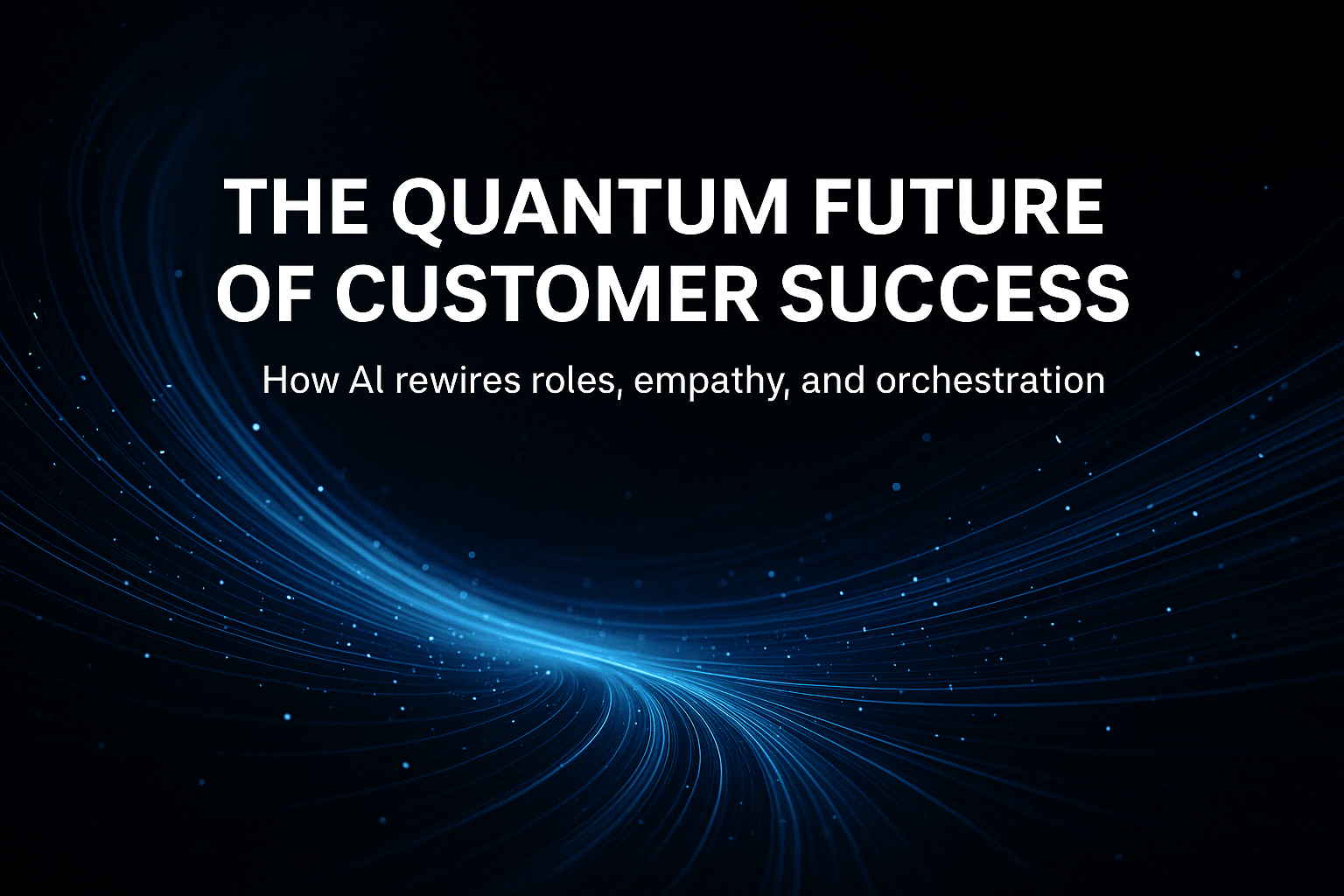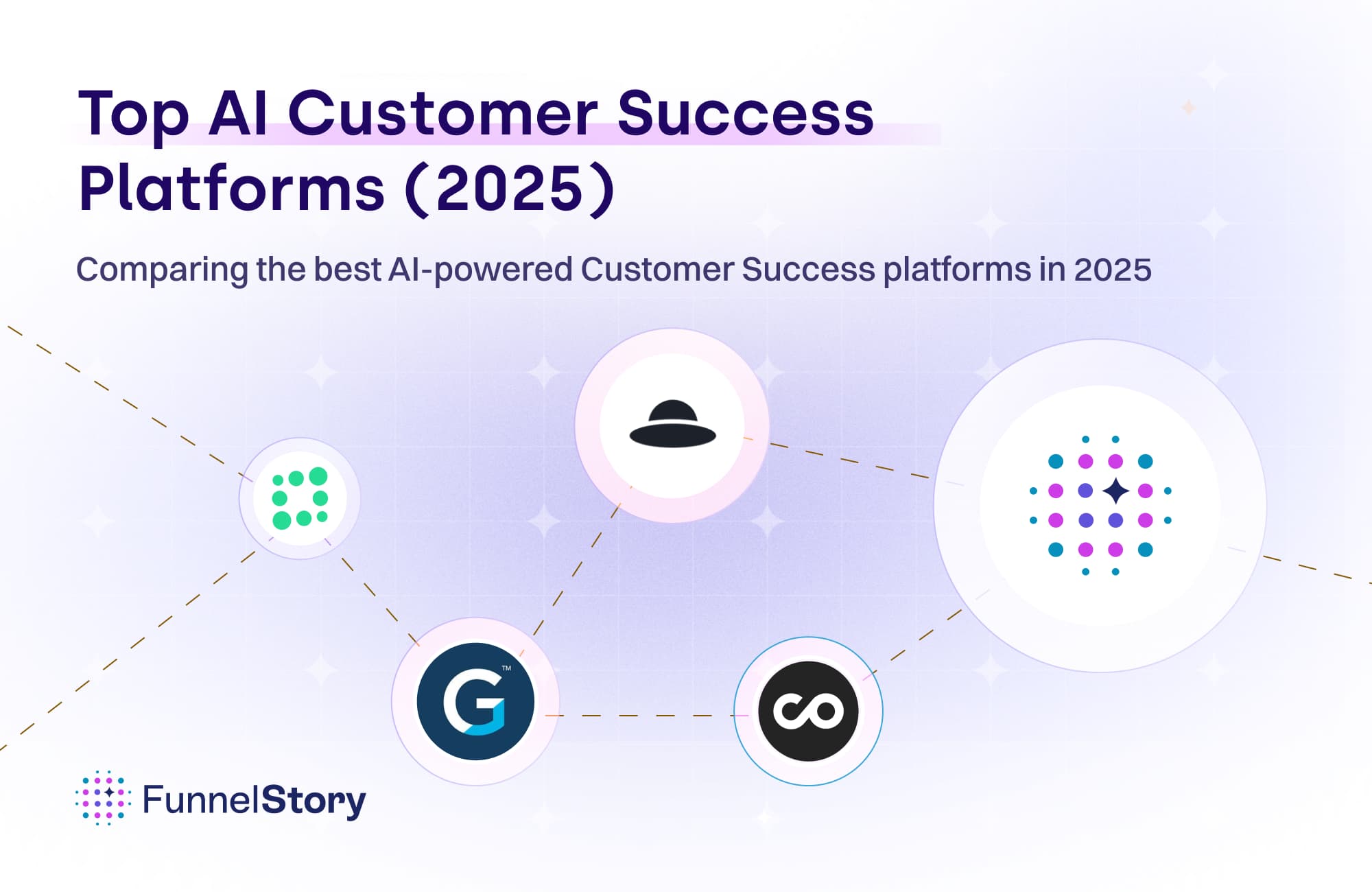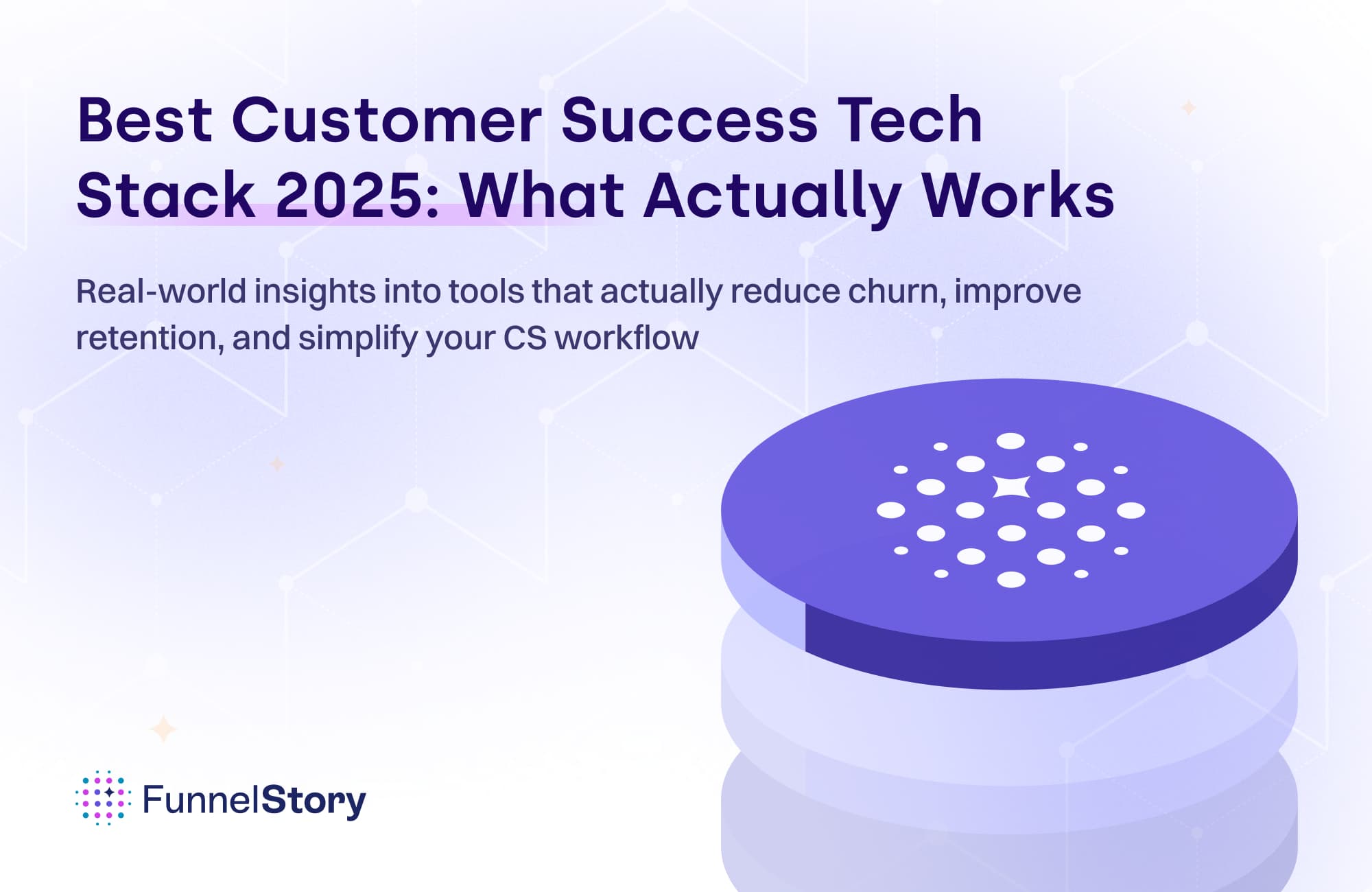In this article
Exploring the power of AI in product-led customer success
Preetam Jinka, Co-Founder and Chief Architect at FunnelStory, starts off this talk arguing that traditional customer success (CS) is lacking due to its reliance on manual, subjective data gathering and inefficient processes.

By Arun Balakrishnan
Cofounder and Head of Product
Feb 01, 2024
3 min read
It’s already February! A special once-in-four-years birthday wishes to the lucky February 29ers!
This newsletter will focus on another interesting discussion we had during our last meetup on Jan 18th.
Preetam Jinka, Co-Founder and Chief Architect at FunnelStory, starts off this talk arguing that traditional customer success (CS) is lacking due to its reliance on manual, subjective data gathering and inefficient processes. Preetam makes the case for using AI in product-led CS to:
Leverage data for better decision-making: AI can analyze large amounts of data from various sources to provide deeper insights into customer behavior and pain points.
Deliver consistent, high-quality experiences: AI-powered tools can automate tasks and personalize interactions, ensuring every customer receives the same level of quality service regardless of size or budget.
Increase efficiency and impact: By automating repetitive tasks, AI frees up CS teams to focus on strategic initiatives and high-value interactions with customers.
Preetam then goes on to discuss AI by taking a deep dive into the world of AI, machine learning (ML), and large language models (LLMs) and their potential impact on customer success. He first clarifies the differences between these terms and explores their unique strengths and weaknesses in the context of product-led customer success. Key Takeaways:
AI vs. ML: AI is the broader concept of intelligent problem-solving, while ML is a set of specific techniques that uses algorithms to learn from data. In terms of analogies - AI is to computer science as ML is to data structures and algorithms.
LLMs and their limitations: LLMs excel at language tasks like chatbots and text generation, but struggle with computation and complex numerical analysis.
Unlocking the potential of LLMs: Techniques like retrieval-augmented generation and function calling can enhance their usefulness in customer success by incorporating data and automation.
Machine learning shines where LLMs fall short: When dealing with data analysis, uncovering insights, and automating tasks that require computation, ML is the champion.
The data challenge: Both AI and ML rely heavily on high-quality data. Gathering and integrating data from various sources can be a significant hurdle in customer success.
The talk concludes by highlighting the gap between current implementations and the ideal fully automated solution. The key lies in bridging the data gap and streamlining the process of extracting valuable insights.
In other things

We attended the CEO Summit 2024 in Scottsdale, AZ on January 25th. The event had over 120 CEOs and Co-Founders as attendees. Packed agenda and great speakers! Here’s some of our key takeaways from the event:
Profitable growth takes center stage, replacing the "growth at all costs" mantra.
VCs redefine growth expectations - PEG is the new buzzword - Profitable-Efficient-Growth
Work-life balance trends shift with "Work-from-Work Wednesdays" emerging.
CEOs hold employee trust, but employee satisfaction with jobs is still low.
This summit offered valuable insights into the current tech climate and its challenges. Kudos to the organizers for facilitating these important discussions.




